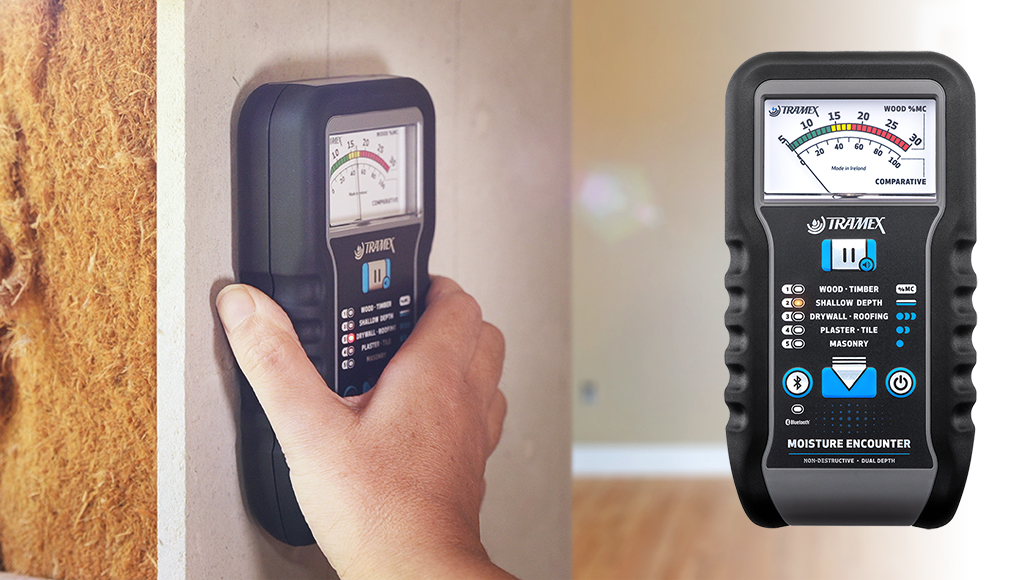Top 10 Advantages of Using a Moisture Meter for Definite Measurements in your house
Top 10 Advantages of Using a Moisture Meter for Definite Measurements in your house
Blog Article
The Ultimate Guide to Dampness Meters: A Comprehensive Summary and Exactly How They Can Conserve You Money
Wetness meters offer as indispensable devices in identifying and keeping track of moisture web content in materials, aiding in stopping expensive problems and ensuring the quality of items. Comprehending the subtleties of various kinds of wetness meters, their applications, and the possible cost-saving benefits they supply can be a game-changer for businesses and professionals alike.
Kinds Of Moisture Meters
One typical type is the pin-type moisture meter, which gauges the electrical resistance in between 2 pins inserted right into a material. Pinless moisture meters, on the other hand, usage electro-magnetic sensor plates to scan a larger area without creating damage to the product's surface.

Infrared dampness meters determine the thermal residential properties of a material to establish its dampness web content non-invasively, making them valuable for applications where pin or pinless meters might not be appropriate. Recognizing the various types of moisture meters available can aid industries select the most proper device for their details moisture dimension demands.

Advantages of Utilizing Dampness Meters
Dampness meters offer very useful benefits in accurately keeping an eye on and assessing dampness levels in diverse materials and settings (Moisture Meter). Among the main advantages of using wetness meters is the prevention of prospective damage caused by excess moisture. By finding and addressing high wetness levels beforehand, moisture meters aid to avoid mold and mildew growth, rot, and architectural damage in buildings, saving both time and cash on repair services. In addition, wetness meters aid in making certain the quality of materials during construction or production processes. By properly determining moisture web content, these tools help keep the honesty of timber, drywall, concrete, and other products, minimizing the danger of defects or failures.
Additionally, using moisture meters can lead to enhanced energy effectiveness. In farming setups, dampness meters play a crucial role in enhancing crop yields by enabling farmers to keep an eye on dirt dampness degrees and make informed watering choices.
How to Pick the Right Wetness Meter
Picking the suitable dampness meter involves thinking about crucial variables such as material compatibility, dimension range, and calibration precision. When selecting a dampness meter, it's important to ensure that the meter appropriates for the details product you will certainly be screening. Various materials have varying electrical buildings that can impact dampness analyses, so choosing a meter made for your material is essential for exact results. Additionally, take into consideration the measurement variety of the dampness meter. Guarantee that the meter can find wetness levels within the array needed for your applications. Calibration accuracy is another vital variable to remember. Decide for a dampness meter with trustworthy calibration to guarantee accurate and regular analyses. Some meters may need regular calibration adjustments, so comprehending the calibration process is very important. By carefully evaluating these variables, you can select a wetness meter that satisfies your requirements and provides exact moisture measurements for your tasks.
Correct Techniques for Dampness Meter Usage

Cost Cost Savings Through Wetness Meter Applications
Exactly how can the calculated usage of wetness meters result in substantial price financial savings throughout numerous markets? Moisture meters play a crucial duty in price financial savings by protecting against possible damages and guaranteeing quality assurance in different fields. In the farming industry, wetness meters aid in figuring out the ideal time for gathering plants, preventing over-drying or excess moisture that can affect the end product's quality. This accurate monitoring aids farmers stay clear of unneeded losses and maximize their return.
Similarly, in building and construction, moisture meters help protect get more against expensive damages by discovering moisture levels in building materials, such as wood or concrete, which can bring about structural issues otherwise resolved quickly. By identifying trouble locations early, professionals can take corrective actions to prevent substantial repair work or substitutes, inevitably conserving money and time.
Furthermore, in the food handling market, dampness meters are vital for keeping an eye on item top quality and making certain compliance with safety and security regulations. By properly measuring wetness content in foodstuff, makers can protect against perishing, keep freshness, and minimize waste, causing substantial price savings. In general, the tactical application of wetness meters is a beneficial investment that can cause significant expense decreases and boosted effectiveness across numerous sectors.
Conclusion
In conclusion, moisture meters are beneficial tools for detecting and determining dampness levels in numerous materials. By using the best click for source moisture meter and following appropriate methods, individuals can effectively prevent costly damages caused by excess wetness.
Dampness meters offer as essential devices in spotting and keeping an eye on moisture web content in materials, assisting in stopping costly damages and making sure the quality of products. Infrared wetness meters gauge the thermal properties of a material to identify its dampness material non-invasively, making them useful for applications where pin or pinless meters may not be suitable.Wetness meters use indispensable advantages in accurately assessing and checking moisture levels in diverse materials and settings. In farming settings, dampness meters play a vital function in maximizing crop yields by allowing farmers to keep track of soil moisture degrees and make notified watering decisions.In conclusion, dampness meters are beneficial devices for identifying and measuring dampness levels in different products.
Report this page